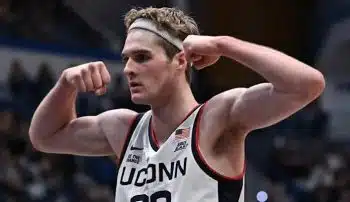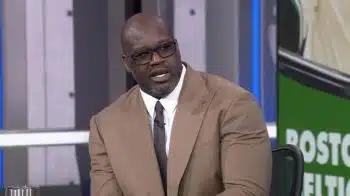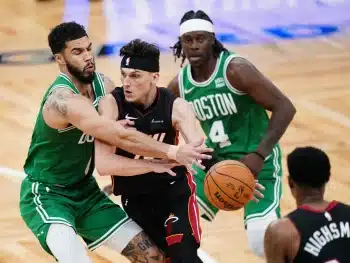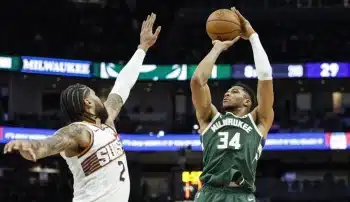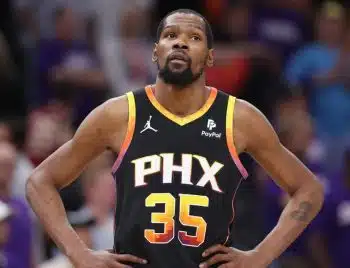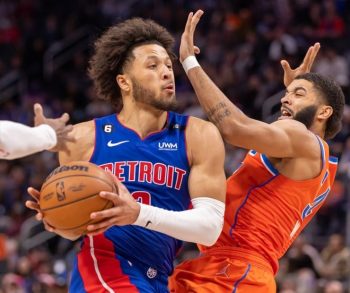NBA
Utah Jazz Should Restructure Derrick Favors’ Contract
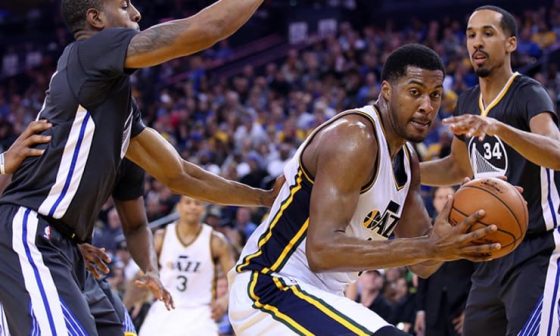
With the salary cap jumping to a projected $92 million in July, a historic rise from this season’s $70 million, teams may struggle to spend enough to reach a salary floor of roughly $82.8 million.
In April, the NBA sent out a memo anticipating teams will collectively fall short of their minimum obligation, based on the agreed-upon split of Basketball Related Income, by $375 million — an average of $12.5 million per squad. Any franchise still under the floor by the end of the 2016-17 season will be required to cut a check to their rostered players for the difference.
Reaching $83 million in team salary may take some creativity this summer, similar to the moves made by the Denver Nuggets last year, who used salary-cap space to renegotiate and extend the contracts of forwards Danilo Gallinari and Wilson Chandler.
Gallinari, who was in the final year of his deal at $11.6 million, was bumped up to $14 million for the 2015-16 season – part of a new three-year, $45.2 million contract. Chandler’s $7.2 million was increased to $10.4 million, in a deal totaling $46.5 million over four years. Both Gallinari and Chandler have player options for their final seasons.
A number of teams may consider following suit this summer, renegotiating contracts to reach the salary floor — although the requirements are stringent.
Not only must the team have enough salary cap space to increase a player’s salary, that player is only eligible if he is currently on a contract of at least four years in length. Additionally, a renegotiation cannot be done until the third-year signing anniversary of their current contract.
One player and team who fit those criteria could be Derrick Favors and the Utah Jazz.
Favors, who just completed his sixth season, signed a $48 million four-year extension on October 19, 2013. The Jazz project to have between $22.8 and $34.5 million in cap space this summer.
Favors’ deal can be re-worked in October, where his maximum salary projects to be $21.6 million — almost as much as the forward/center is scheduled to earn over the next two seasons ($11.1 million and $12.0 million).
A one-year bump would help the Jazz reach the floor. Favors gets a sizable jump in pay for 2016-17, after which Utah can reduce his salary by 40 percent, down to $12.9 million for 2017-18 — almost a million more than he’s currently contracted to earn.
From there, Utah can add on up to two more seasons, either climbing or decreasing by approximately $971,000 a season. If Favors is willing to take an immediate jump in pay, in return, he can help his team down the road, with a salary as low as $11 million through 2019-20 (perhaps with a player option on the final year).
The Jazz would reach or near the salary floor, while locking an important part of their core for an additional season or two at a discounted rate.
Utah can choose to max out Favors now on a four-year deal, $96 million contract — but that nay not be the best use of their financial flexibility. The 24-year old Favors is already locked in on a contract that, forgive the pun, clearly favors his team.
Additionally, the Jazz have other economic decisions to make this summer, including a potential rookie-scale extension for Rudy Gobert before the end of October. Gobert’s next contract can start as high as an estimated $25.1 million, starting with the 2017-18 season.
Small forward Gordon Hayward is also heading into what is likely the last year on his contract, able to opt out of his final season at $16.7 million. A standard extension for Hayward is unlikely, as its limited to a starting salary of $17.3 million, far short of the $30 million he would be eligible to earn in free agency.
Because Hayward is on a three-year contract, the Jazz cannot restructure his contract.
The Jazz still have a slight chance of landing a top-three pick in Tuesday’s NBA Draft Lottery (2.5 percent). They’ll have plenty of cap space to pursue free agents this summer, and trades always remain an option.
That said, Utah should hold onto an extra $10-11 million in spending power come October to re-do Favors’ deal.
Interested betting on the Utah team? – Don’t miss out on reading our guide about sports betting in Utah first!
Others Eligible for Restructuring
A number of players are eligible to have their contracts renegotiated and extended, by virtue of signing deals in 2013 (or earlier).
Not all of the following teams will have cap room, and those that do may look instead to add talent to improve their respective rosters:
Atlanta Hawks
Jeff Teague (as of July 17)
Kyle Korver (as of July 11)
Tiago Splitter (as of July 13)
Brooklyn Nets
Jarrett Jack (as of July 12)
Chicago Bulls
Derrick Rose
Taj Gibson
Golden State Warriors
Stephen Curry
Andrew Bogut (as of October 25)
Andre Iguodala (as of July 10)
Houston Rockets
James Harden
Indiana Pacers
Paul George (as of September 25)
George Hill
Los Angeles Clippers
Chris Paul (as of July 10)
Blake Griffin
J.J. Redick (as of July 10)
Memphis Grizzlies
Tony Allen (as of July 13)
Minnesota Timberwolves
Nikola Pekovic (as of August 15)
New Orleans Pelicans
Tyreke Evans (as of July 1)
Jrue Holiday
Quincy Pondexter (as of October 31)
New York Knicks
Jose Calderon (as of July 11)
Oklahoma City Thunder
Russell Westbrook
Serge Ibaka
Orlando Magic
Ersan Ilyasova
Sacramento Kings
DeMarcus Cousins (as of September 30)
Toronto Raptors
DeMar DeRozan (provided he opts in)
Washington Wizards
John Wall (as of July 31)
